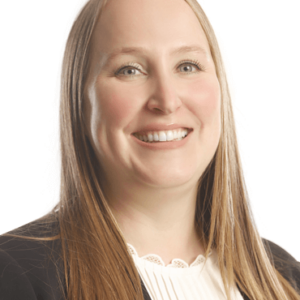ValuQuest is seeing varying levels of value for practice acquisitions. And the most significant variable appears to be the numbers of providers within any practice unit. Over the past four to five years, we have looked at well over 100 health care acquisitions all across New York State. I will write this as if I am talking to the sellers, the doctors, and for that fact, to the owners of health care providers of all kinds.
Dr. Jones is a skilled surgeon, with a national reputation, who practices on his own with a small office staff, all of whom all have been with him for many years. They all know exactly what to do, how and when. They can finish each other’s sentences and the practice as a whole makes a very large amount of money, and has done so for 20 years. The practice sees patients two days a week, and the doctor operates at two hospitals. He spends more time at the hospitals than at the suburban offices. Dr. Jones is 67 years old and only plans on working three more years. He is looking to sell the endeavor.
This practice may not have much value at all. The doctor is valuable, very valuable. But the practice as an independent business, without the doctor practicing, has highly diminished cash flows and therefore very limited value. When Dr. Jones retires, there is not a successor, not partners, no other doctors to carry on the work. As an independent enterprise, Dr. Jones P.C. will essentially cease when he retires. A buyer cannot replace Dr. Jones adequately in three years, and will not be able to achieve the same operating profits enjoyed by Dr. Jones. The hospital CANNOT pay him a large sum. It’s against the law. This is often very disappointing to the physician who has spent decades building the team and the firm into an efficient and very profitable venture. Why isn’t my life’s work, my professional legacy, worth millions of dollars?
Meanwhile, across the street, is Upstate Docs. This practice is owned by six average doctors, none of any particular renown, all good doctors, hardworking, honest and caring. There are also eight physician’s assistants and five practical nurses. They have an office with 11 exam rooms and rudimentary diagnostic equipment, and they own a lab in the same building. As it turns out, Upstate Docs is worth $5.7 million, and each doctor will receive almost $1 million upon a sale to the hospital that wants the practice as an outreach into the community.
Dr. Jones, the renowned specialist, would assume that his business segment is worth more, since he personally gets paid more than any of the doctors at Upstate. But his value is personal. He is valuable, NOT his practice. Upstate is a business enterprise, runs with processes and procedures, and to some degree, interchangeable parts. The business is not dependent on any one person or facet of the business. So a buyer WILL be able to continue the business in a similar manner as Upstate has run for years. This maintained profitability allows the buyer to pay substantial multiples of cash flow to the owner Physicians at Upstate.
Lesson to learn
A plan of succession, a plan that demonstrates the ability to maintain operating profits for years to come, will allow a buyer to pay large amounts to the sellers. In advance of any plan to sell, the owners of any business need to establish a plan that allows the BUSINESS to continue well beyond their own personal services to that business. Notice this sentence is not health care specific. It applies to any small business.
Small businesses need a plan—a plan to extend the operations without dependence on one person.
Note: The compensation arrangements in our example above could help level a playing field IF Dr. Jones were to continue practicing. Dr. Jones should be able to command a level of pay that will match his expertise, and far out distance the compensation plan offered to the docs at Upstate.
Anthony Duffy is the managing director of ValuQuest based out of our Albany, NY office.
This material has been prepared for general, informational purposes only and is not intended to provide, and should not be relied on for, tax, legal or accounting advice. Should you require any such advice, please contact us directly. The information contained herein does not create, and your review or use of the information does not constitute, an accountant-client relationship.




